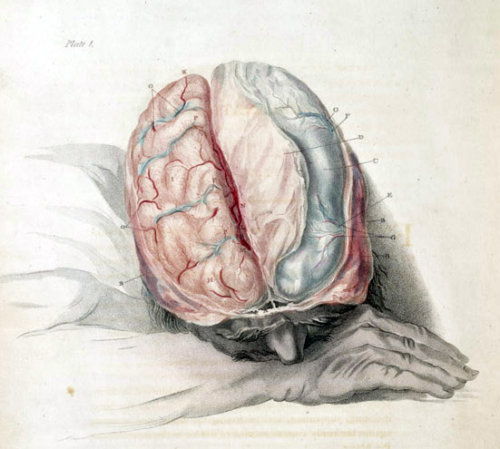Hoarding Disorder -Causes and the Truth About the Clutter
 Extreme clutter, or hoarding disorder? What is the difference?
Extreme clutter, or hoarding disorder? What is the difference?
Is hoarding a mental illness?
Hoarding can be something it’s tempting to write off as eccentricity, a bad habit, or the result of laziness.
But hoarding disorder is a real and overwhelming psychological condition where someone cannot discard or part with their items without feeling extremely distressed. Regardless of an item’s value they feel a need to save things.
Like all mental health disorders, hoarding disorder directly and consistently affects a sufferer’s life. This can include jeopardising health and safety, undermining financial security, and stressing relationships with friends and family. And it doesn’t come out of nowhere, but has roots in things like childhood trauma.
What sort of mental health disorder is it?
For a long time hoarding was seen as a symptom of another psychological diagnosis, obsessive compulsive personality disorder (OCPD). It was also thought to sometimes appear in severe cases of obsessive compulsive disorder (OCD).
But in most cases of extreme hoarding no signs of either of these other disorders were found. So the most recent edition version of America’s well-known Diagnostic and Statistical Manual for Mental Disorders (DSM) now lists “hoarding disorder” as a standalone diagnosis.
Is it hoarding disorder or is it collecting?
Most of us like having things. Whether it’s a shed full of tools and garden equipment or shoes that have a closet of their own, the world is full of objects that add variety and pleasure to our lives. And collectors enjoy arranging, displaying and adding to their collections.
With hoarders, there is no “replacing,” only adding more to the pile. And it’s not an act of enjoyment for hoarders, either. The jumble of acquisitions triggers feelings of shame and despair instead.
‘Why am I a hoarder?’
 Hoarding is the result of disordered thoughts and behaviours a hoarder suffers from. This includes:
Hoarding is the result of disordered thoughts and behaviours a hoarder suffers from. This includes:
- Intense and emotional over-attachment to objects. Regardless of the item’s value, significance, or usefulness.
- Compulsion to acquire. Often seen as “rescuing” items, saving them to give as gifts, or refurbishing them for re-sale
- Inability to part with items. Once in the house, objects are unlikely to leave, and attempts to discard even spoiled and unusable goods provoke intolerable feelings of anxiety.
- Lack of ability to organise, care for, locate, make use of, or enjoy items that have been acquired.
- Inability to prioritise. Living space, including areas used for sleeping, bathing and cooking, is given up to the hoard. Money needed for expenses like utility bills may be spent on more acquisitions.
- Lack of awareness about the severity of the situation, its impact, and worsening living conditions. Even personal comfort, health, and safety are disregarded.
- Emotional distress. Hoarding is usually accompanied by feelings of anxiety, depression, anger, shame, fear, helplessness, grief, loneliness, or other difficult painful emotions.
What sort of person hoards?
 Hoarding is now known to be much more common than previously thought.
Hoarding is now known to be much more common than previously thought.
According to the DSM, up to five in every 100 people suffer from hoarding.
And stereotypes of cat ladies not withstanding, hoarding is not primarily a woman’s disease. A study at John Hopkins University found that hoarding is more common in men than women. Women are simply more like to seek help or come to the attention of social services.
(Read a hoarding case study for more).
Can children be hoarders?
Even more surprising might be that children and young adults can be hoarders. They are often not seen as such because parents control their environment and activities, or see low-level collecting as a phase.
Parents should be alert to symptoms. This can look like a young child who indiscriminately clings to broken toys, or a socially isolated teen whose room becomes an inaccessible fortress of objects. Early help from a therapist can help deter larger problems later in life.
Risk factors for hoarding disorder
There is no one “cause” of hoarding. As with many other mental disorders, there are a number of factors that put the person at risk. These include the following.
 Genetics and brain chemistry
Genetics and brain chemistry
Having a family member who is a hoarder increases the risk of becoming a hoarder yourself. Brain scans found that decision-making areas of the brain are different in hoarders. This suggests an element of inherited brain chemistry, not just learned behaviour.
Co-existence of another disorder
While not true of all cases, many people who hoard suffer from some form of anxiety, particularly OCD or PTSD. Hoarding is also frequently accompanied by depression, which flourishes as living conditions and social relationships deteriorate.
Research also connects hoarding to inattentive ADHD. And there is also sometimes a connection to borderline personality disorder.
Traumatic life experiences and hoarding disorder
The life histories of hoarders are seldom free of significant trauma, and often childhood trauma. This can look like loss of a sibling or parent, or being the victim of war or a violent crime. It might be losing a career that was essential to one’s identity. Or it could have been severe punishment, abandonment, or sexual abuse during childhood.
Ageing
Hoarding worsens over time and often becomes a problem in middle age and beyond. Losses and traumas experienced earlier in life may loom larger than ever, and the hope that life will get better slowly erodes. This is a time of life when people may begin to experience health problems, or a loss of earning power that fosters feelings of vulnerability and helplessness.
A kind of giving up may set in, and even simple tasks that were done before, like taking out the garbage, may be neglected.
Getting help for your hoarding
Hoarding in itself is stressful. Addressing the problem before a crisis occurs is preferable to doing it when you’re under threat of eviction, or worried about having your pets or children taken away from you.
If you feel clutter has gotten the upper hand in your life, and feel powerless or paralysed because of it? Or can see that hoarding has had a negative impact on your work performance, your social life, or your relationships with family members? It’s time to get help.
What can you expect from treatment for hoarding?
There is no medication that directly helps hoarding disorder. Medication prescribed for co-existing problems like OCD and depression can indirectly help by decreasing anxiety and improving outlook and mood.
But the most common and effective way to deal with hoarding itself is through cognitive behavioural therapy (CBT).
A therapist experienced in treating hoarding will help you explore, understand, and redirect hoarding urges. He or she will also help you with practical skills. This includes decreasing the anxiety that comes with de-cluttering, improving your ability to make sound decisions about what to keep and what to discard, and developing ways to cope with feelings of loss and loneliness.
Family therapy is often a recommended part of treatment for hoarding disorder. Spouses and children often feel that the hoarder has chosen objects over them. Expressing these feelings in a mediated environment can be the first step in repairing relationships vital to the hoarder’s long-term recovery. It can also help expose and heal root issues that see the hoarder feeling unsupported and turning to hoarding to cope.
How can you help a hoarder?
Showing anger is unhelpful. As is asking unproductive questions like, “How did you let things get so out of control?”. Making the person feel ashamed or pushing them to take the defence position will only make them cling harder to the hoard, as they’ll feel it’s all they have.
Address the person from the part of you that cares for them. Statements like ‘You deserve better than this’, and ‘If you’re ready to clean this up, I’m here to help’ will prove more productive.
The decluttering process
 Helping someone clear a hoard is not easy. The physical work is exhausting, often repugnant, and sometimes even hazardous. It’s up to you to set limits for what you can handle, both in terms of the hoard and the hoarder.
Helping someone clear a hoard is not easy. The physical work is exhausting, often repugnant, and sometimes even hazardous. It’s up to you to set limits for what you can handle, both in terms of the hoard and the hoarder.
During the clear away process, the hoarder is at his or her most angry and vulnerable. He or she may respond by becoming belligerent.
Try to see things from hoarder’s point of view. Remember, what is useless to you is freighted with emotion for them. Imagine how distressed you would feel if a friend or family member told you they were getting rid of your pet, or the only pair of shoes you had. And you will begin to understand the alarm the person feels during this process.
Do you or a loved one need help for hoarding disorder? We connect you with some of London’s best talk therapists. Or use our sister site to book registered therapists working across the UK.
Photos by Aric McKeown, Richard Masoner, Hery Zo Rakotondramana, Shaheen Lakhan,





My 9 year old daughter has started to show signs of hoarding which can go from one extreme to another i.e. she hoards toys and clothes but also dirty paper hankies and used toilet pater covered with faeces. when either myself or my wife tries to clear the objects away with her approval she becomes very agitated, emotional (and has episodes of constant screaming of which we have had both our neighbours and the police come to our door to ask what is happening) and at times extremely violent. This has only happened since she found out that he grandfather has terminal cancer and that I too have been diagnosed with cancer.
She went from a sweet, caring and level headed young girl into a person that I no longer recognise. we are seeking the appropriate help for her but realise that this will be a very long, emotional and difficult journey that I would not wish on any parent.
Hi Derren, that must certainly be really difficult. But we are very glad to hear you are seeing help, and we hope by that you mean a child psychologist. She is reacting to the extreme stress of knowing she is going to lose those she loves. There is a logic to what she is doing – she is holding on to the only things she has control of holding onto. She needs support and love. She’s scared. We hope that you find a good child psychologist. If you are in the UK and near London, we have a roster of very experienced and empathetic child psychologists. We don’t usually push our therapists on others in the comment box, certainly not, but this does seem an emergency and the last thing you need is a therapist who is not good at their job or is not kind and understanding.
I am a hoarder and it’s causes need to lose W2s because I can’t find them, so I’ve missed many years of filling with IRS. I notice other ocd behaviors too. Because my house doesn’t look like those they show on tv, I keep telling myself “it’s not that bad,” but it is. There are piles in every room & my way of cleaning up is moving some mess if my kids are going to visit. I dif through a pile of clothes every day to get dressed. I feel some of this & other self destructive behaviors in my life are partially related to sexual advise which started before I was even in school. I received counseling for that. I recently started seeing a therapist & showed her pictures of my home. She kept repeating the same mantra… To take regular walks when stressed & work on one area at a time. I quit because it wasn’t meeting my desperate needs, even after 8 months. How do I find a qualified therapist near Naperville, which is in the far southwest suburbs of Chicago.
Hi there Ling, we agree, that’s not so useful as advice. Hoarding relates to deep issues, not taking a walk. We’d guess there are deep unconscious beliefs about safety and lack that are involved, given your abuse background. We are in the UK, so unfortunately can’t help you with a therapist out that way, but we can help you with the search. Often we go into powerlessness when we seek a therapist, especially with a trauma background. We feel we have to go with whoever we find and defer to them. But see it like dating, you have to ask good questions, keep your wits about you, and remember you owe them nothing if they are not the right therapist for you (although if you have trust issues, do try to stick it out at least 3-4 sessions before deciding if they even seem ok, as sometimes it takes time to see if the click is there). We’d suggest you use our guide on what to look for when finding a therapist (it’s for the UK, but it has good ideas that will still apply). https://www.harleytherapy.co.uk/counselling/how-to-find-a-good-therapist.htm Then use our article on questions to ask a therapist
https://www.harleytherapy.co.uk/counselling/finding-the-right-therapist.htm. We’d also suggest you look into our article on therapies that work with trauma http://bit.ly/therapyfortrauma. As not all do, some can make things worse…. the clutter is a symptom, not the issue (by the way we find a high percentage of abuse survivors also have money and finance issues). Working with the deeper issues will also help the symptoms, if that makes sense. We know you said you did some counselling for the abuse, but it’s a big thing, and we’d guess it’s still affecting your way of thinking, as abuse leaves us feeling unsafe in the world and like we have to control things. Hope that helps! We do feel that this issue can be helped, don’t give up! Best, HT.
thanks for info